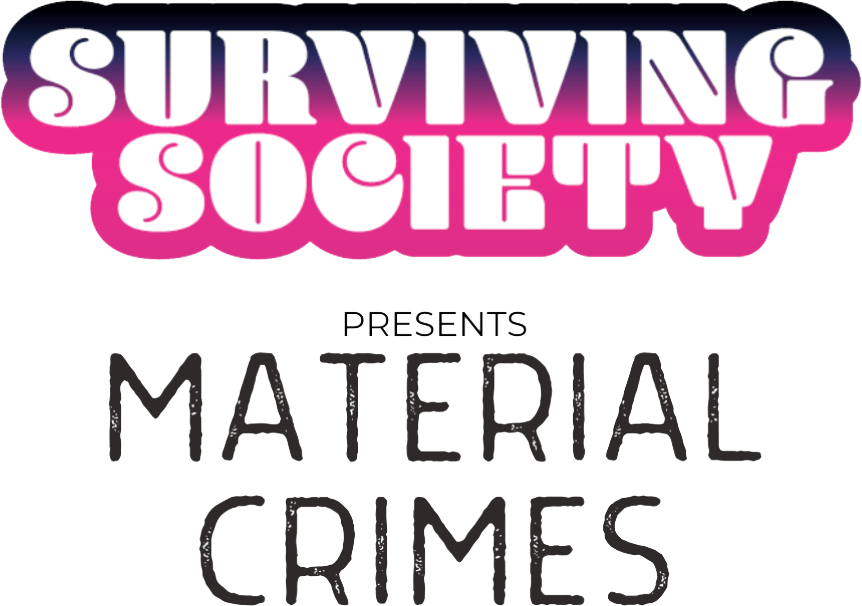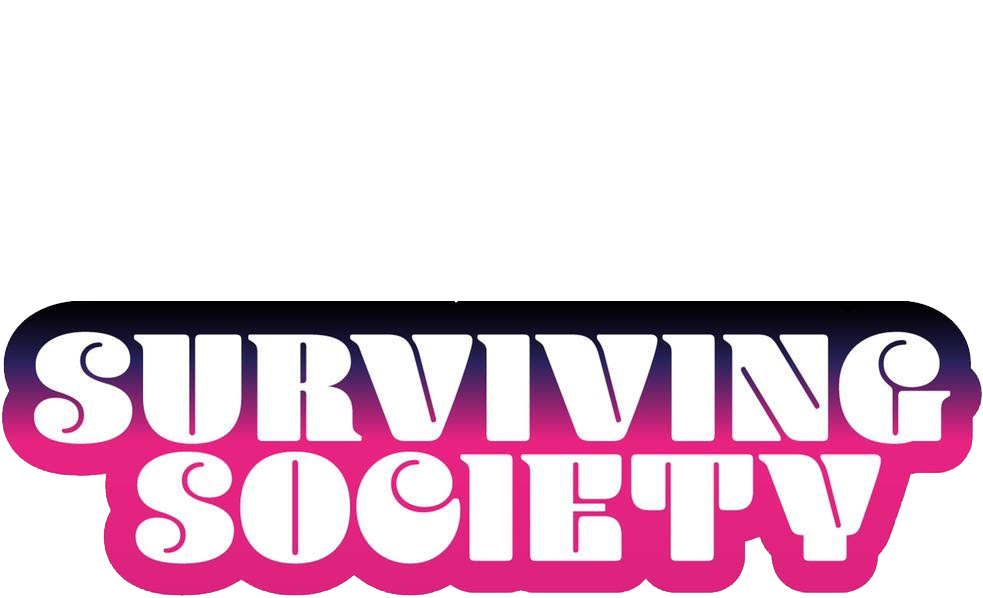Material Crimes is what happens when “true crime” meets academic research.
Like a detective, each episode’s narrator follows the trail of a different infrastructural crime, grounded in a specific site, with its own particular history. But whether the focus is a dam, a trainline or a mine, in the suburbs of South Africa or a military base in Kenya, the people featured across these episodes tie them to global histories of conquest, resource extraction, and profit-making.
As a whole, the series takes a deep dive into the material crimes that shape the lives of colonised, racialised and marginalised communities everywhere, as well as how they are mobilising for different, liberated futures.
Countless voices have gone into the making of this series. Every episode is told by a different narrator, each with a deeply personal connection to the infrastructural crime they describe. Across the series you’ll also hear from a host of incredible academics and activists who help unravel the infrastructural crimes - and struggles for justice - covered in the series.
Click here for a full list of Season One citations. Season Two citations will be published once all episodes are live.
Like a detective, each episode’s narrator follows the trail of a different infrastructural crime, grounded in a specific site, with its own particular history. But whether the focus is a dam, a trainline or a mine, in the suburbs of South Africa or a military base in Kenya, the people featured across these episodes tie them to global histories of conquest, resource extraction, and profit-making.
As a whole, the series takes a deep dive into the material crimes that shape the lives of colonised, racialised and marginalised communities everywhere, as well as how they are mobilising for different, liberated futures.
Countless voices have gone into the making of this series. Every episode is told by a different narrator, each with a deeply personal connection to the infrastructural crime they describe. Across the series you’ll also hear from a host of incredible academics and activists who help unravel the infrastructural crimes - and struggles for justice - covered in the series.
Click here for a full list of Season One citations. Season Two citations will be published once all episodes are live.
Behind the podcast:
Surviving Society Presents: Material Crimes is a labour of love and the outcome of an incredible, long-term collaboration.
Maia Holtermann Entwistle (QMUL) and Sharri Plonski (QMUL) are the series’ co-creators. They are both scholars of colonialism, infrastructure, race, and resistance, with a regional focus on the Middle East.
Surviving Society Productions - the series’ hosts, co-producers and intellectual collaborators - is an audio and digital resource contributing to the systemic change needed in education. Hosted by Chantelle J Lewis and executive produced by George ‘Adders’ Ofori-Addo, the podcast is a tool of resistance embedded in the politics of representation, liberation, and equity. Surviving Society currently hosts over 300 episodes focused on scholarship, activism, and community organising, featuring a huge array of creative folks and interlocutors. It is the UK’s #1 sociology podcast.
The audio was produced and edited by George (Adders) Ofori-Addo, an award-winning audio producer and the executive producer of Surviving Society. Adders has worked on numerous productions including BBC 5 Live’s Tailenders and BBC One’s Team GB Homecoming, and the podcasts of The Echo Chamber and The World is Ours to name a few.
All visuals and website were designed by Frederick Kannemeyer, a South African-trained architect. His portfolio of work includes collaborations with a wide variety of architectural institutions, collectives and individuals on various research, curatorial and archival projects. The focus of these projects range from traditional architecture to architectures of decoloniality, abolitionism, map-making and archive-building.
Evelyn Miller, Surviving Society Productions' Strategy and Marketing Director, designed the new series logo and has promoted and supported the project.
Season One includes contributions by Tissot Regis, a previous host of Surviving Society Productions, and Bronte Dow, an artist, sound engineer and filmmaker, who helped curate and edit the sound for several episodes.
Contact/Social Media:
︎ materialcrimespodcast@gmail.com
︎ www.survivingsociety.co.uk
︎ @survivingsocietypod
︎ @survivesocpod
︎ Surviving Society - Back Catalogue
Queen Mary University of London: www.qmul.ac.uk
Surviving Society Podcast: www.survivingsociety.co.uk
Surviving Society Podcast: www.survivingsociety.co.uk
Material Crimes is currently co-funded by Surviving Society Productions, the Leverhulme Trust and Queen Mary University of London’s School of Politics and International Relations and Institute of Humanities and Social Sciences.
Copyright © 2024 Material Crimes. All Rights Reserved
Copyright © 2024 Material Crimes. All Rights Reserved

